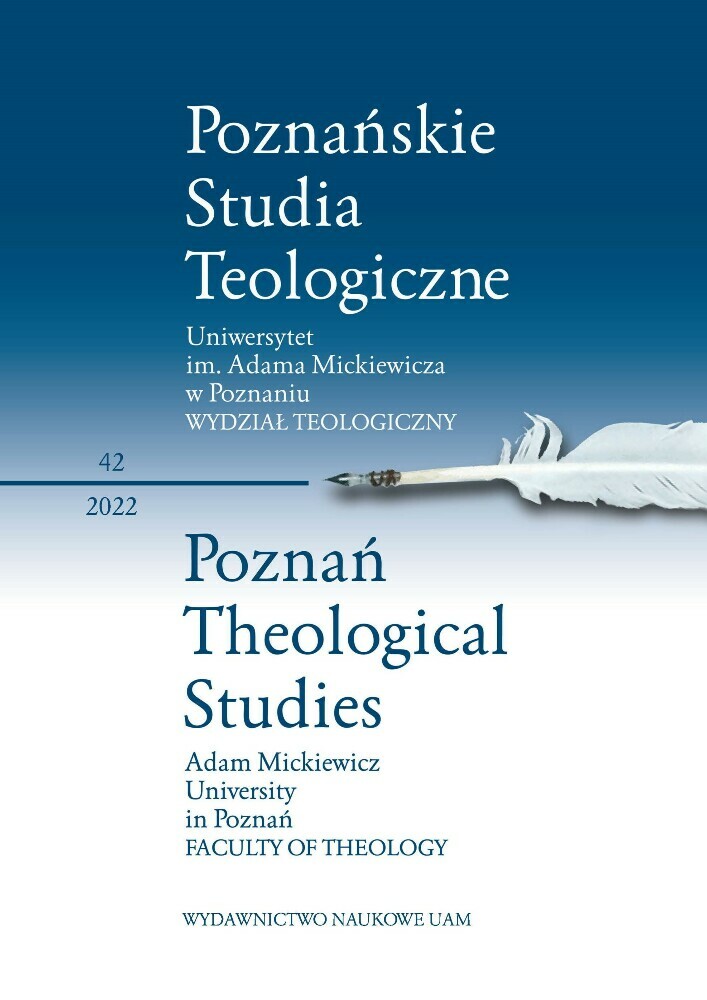Abstract
Professional burnout prevention provides religion teachers with the optimum aid and support in developing the skills necessary to cope with stress caused by external factors (e.g. low prestige level of the religion teacher profession, lack of satisfying contact with students and their parents, social and ecclesial expectations, the need for constant professional development). The purpose of the analyses performed for this study is to show the opinions of selected groups of respondents (in the archdiocese of Warmia and the diocese of Opole) on ways of preventing professional burnout among religion teachers. They focus on various suggestions related to professional burnout prevention. They argue that religion teachers see the need for consistent support in various areas from the personnel responsible for permanent formation. They find it important to continue constructive cooperation with the school management, parents, teachers, parish priests, inspectors and heads of catechetical departments, conducted in an atmosphere of dialogue and trust. The respondents suggest the need to seek new solutions for professional burnout prevention and for improving the care of spiritual formation.
References
Buchta R., Cichosz W., Zellma A., Religious Education in Poland during the COVID-19 Pandemic from the Perspective of Religion Teachers of the Silesian Voivodeship, „Religions” 12(2021)8, s. 1-13. https://doi.org/10.3390/rel12080650 DOI: https://doi.org/10.3390/rel12080650
Gogolik M., Wypalenie zawodowe nauczycieli religii, w: Edukacja. Teologia i Dialog. Wybrane aspekty kryzysów egzystencjalnych i religijnych, t. 12, red. B. J. Soiński, Poznań 2016, s. 85-97.
Hreciński P., Religijne sposoby radzenia sobie a stres i wypalenie zawodowe u nauczycieli religii, „Studia Psychologica” 17(2017)2, s. 43-59. https://doi.org/10.21697/sp.2017.17.2.03 DOI: https://doi.org/10.21697/sp.2017.17.2.03
Kocór M., Wypalenie zawodowe nauczycieli. Diagnoza, wsparcie, profilaktyka, Kraków 2019.
Lachowska B., Starczewski K., Kryzys w wartościowaniu i praca emocjonalna a wypalenie zawodowe u nauczycieli religii, „Medycyna Pracy” 66(2015)5, s. 687-700. https://doi.org/10.13075/mp.5893.00363 DOI: https://doi.org/10.13075/mp.5893.00363
Lipowska J., Wypalenie zawodowe a motywacja do pracy i czynniki ją wzmacniające u kadry pedagogicznej instytucji opiekuńczo-wychowawczych, Poznań 2016, s. 243.
Papieska Rada ds. Krzewienia Nowej Ewangelizacji, Dyrektorium o katechizacji, Kielce 2020.
Piskozub M., Radzenie sobie ze stresem w pracy katechety, „Studia Gdańskie” 39(2019), s. 235-243.
Simiński Ł., Tożsamość i kompetencje katechetów. Studium katechetyczne w świetle badań katechetów diecezji pelplińskiej, Pelplin 2021.
Stach-Hejosz M., Czego boją się katecheci? Źródła stresu katechety i sposoby przezwyciężania trudności, „Katecheta” 9(2004), s. 62-68.
Stach-Hejosz M., Symptomy stresu w pracy katechety, „Bielsko-Żywieckie Studia Teologiczne” 8(2007), s. 161-172.
Zellma A., Formacja katechetów – inspiracje „Dyrektorium o katechizacji”, „Studia Warmińskie” 58(2021), s. 285-300. https://doi.org/10.31648/sw.6337 DOI: https://doi.org/10.31648/sw.6337
Zellma A., Jak radzić sobie z wypaleniem zawodowym w posłudze katechetycznej?, w: Między tradycją a współczesnością. I Krajowy Kongres Katechetyczny, red. A. Bałoniak, J. Szpet, Poznań 2008, s. 249-270.
Zellma A., Profilaktyka syndromu wypalenia zawodowego we wstępnej formacji nauczycieli religii, „Roczniki Teologiczne” 11(2014), s. 143-156.
License
Copyright (c) 2022 Anna Zellma, Michał Kołakowski

This work is licensed under a Creative Commons Attribution-NonCommercial-NoDerivatives 4.0 International License.

